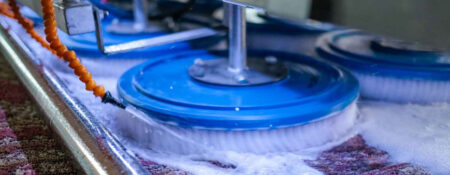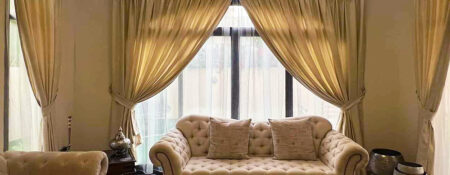Tucked between the Hajar Mountains and the sparkling Gulf of Oman, Kalba is one of the most serene and naturally rich cities in the United Arab Emirates. Located in the Emirate of Sharjah, this coastal town offers a unique blend of heritage, eco-tourism, and natural beauty, making it a must-visit for anyone seeking a quieter, more authentic side of the United Arab Emirates.
Kalba’s history dates back to ancient times, with archaeological evidence suggesting that the region was inhabited as early as the Bronze Age. Historically a fishing and trading settlement, Kalba served as an important stop along maritime trade routes due to its strategic coastal location.
In the early 20th century, Kalba was briefly an independent sheikhdom before becoming part of the Emirate of Sharjah in 1952. Remnants of the past can still be seen today, most notably at the Kalba Fort, a restored 19th-century fort that offers insight into the city’s role in regional politics and defense.
Kalba reflects the traditional Emirati lifestyle with a strong connection to the sea, nature, and tribal values. The city remains deeply rooted in Emirati culture, where fishing, agriculture, and crafts continue to play a significant role in the local way of life.
Visitors can explore cultural sites such as the Heritage Museum and the House of Sheikh Saeed bin Hamad Al Qasimi, a beautiful historical home turned museum showcasing local architecture, artifacts, and royal heritage. The laid-back pace of life in Kalba stands in contrast to the bustling urban centers of Dubai and Abu Dhabi, offering a peaceful retreat and a deeper connection to the country’s roots.
One of Kalba’s greatest treasures is its rich and diverse natural environment. The city is home to the Kalba Mangrove Reserve, one of the oldest and largest mangrove forests in the region. This ecologically significant area supports a wide variety of wildlife, including rare birds such as the white-collared kingfisher and endangered sea turtles.
Eco-tourism initiatives have made Kalba a top destination for nature tourism in the UAE. Visitors can enjoy kayaking through the mangroves, birdwatching, and hiking in the nearby Hajar Mountains. The area is also home to the Al Hafiya Picnic Park and the Al Hefaiyah Mountain Conservation Centre, which house native Arabian wildlife such as the Arabian leopard, gazelles, and caracals.
Kalba boasts some of the most beautiful and tranquil beaches in the UAE. The long stretch of coastline offers soft sand, clear waters, and a quiet atmosphere, ideal for swimming, picnicking, or simply relaxing. Water sports enthusiasts can enjoy activities like paddleboarding, snorkeling, and fishing.
Thanks to the natural surroundings and investment in sustainability, Kalba is also growing as a hub for eco-friendly tourism and outdoor adventure.
Reaching Kalba is both convenient and scenic, making it a great choice for a weekend getaway or a day trip from the major cities of the UAE. Located on the eastern coast in the Emirate of Sharjah, Kalba is roughly:
The easiest and most flexible way to reach Kalba is by private car, allowing travelers to enjoy panoramic views of the Hajar Mountains, desert plains, and coastal scenery along the way. The drive via the E102 (Sharjah-Kalba Road) or the E84 (Fujairah-Kalba Road) is well-maintained and signposted, offering smooth access from both the west and east coasts of the UAE.
For those who prefer not to drive, intercity buses run from Sharjah to Kalba via the Sharjah Public Transport Corporation, though options are limited and travel time is longer. Car rentals, ride-sharing services, or organized tours are recommended for more comfort and flexibility.

Kalba is a year-round destination, but the ideal time to visit is during the cooler months, between October and April. During this period, daytime temperatures are pleasant (ranging from 20°C to 30°C), making it perfect for outdoor activities, nature exploration, and beach relaxation.
Winter is particularly appealing for eco-tourism and wildlife observation, as many bird species migrate through the Kalba Mangrove Reserve, and the clear skies enhance hiking and photography experiences. Nature lovers often flock to Kalba during this season to kayak in the mangroves or explore the Al Hefaiyah Mountain Conservation Centre.
While summer months (May to September) can be extremely hot and humid, early mornings or evenings can still be enjoyable for short beach visits or scenic drives. Some indoor attractions, such as museums and cultural sites, remain accessible year-round with air-conditioned facilities.
Whether you’re planning a nature retreat, a cultural tour, or a relaxing coastal escape, timing your trip to Kalba can enhance your experience and ensure you enjoy the best of what this peaceful coastal city has to offer.
Kalba may not be as famous as other UAE destinations, but its rich history, cultural authenticity, and breathtaking landscapes make it one of the country’s most rewarding places to explore. Whether you’re a history enthusiast, nature lover, or simply looking for a peaceful escape, Kalba offers a perfect balance between tradition and tranquility.




The UAE’s rich history is rooted in trade and tied to Islam. Its unique location between Europe and the Far East became the crucial factor in it's growth into the world's largest trading hubs. Throughout the ages, these lands had attracted merchants from India and China, and were prized by Europeans, in particular the Portuguese, the Dutch and the British.
After the discovery of oil and the formation of the Emirates, the wise rulers began the rapid development of the country's economy, shaping it into what it is today. Though small in size, the UAE quickly became an important player in regional and international affairs.
Although it's growth and development, UAE heritage have not been forgotten - on the contrary, is still well-respected among the nationals. History and culture of local people can be felt in the legendary hospitality of local hotels, architecture of modern skyscrapers and openness and kindness in living among the multinational community.
Here you can read various articles about UAE heritage, history and culture, and better understand, why this country's development became such a success throughout the years.